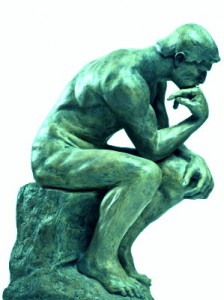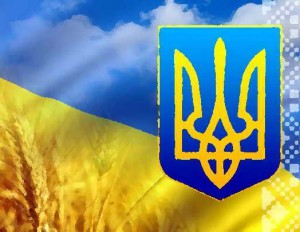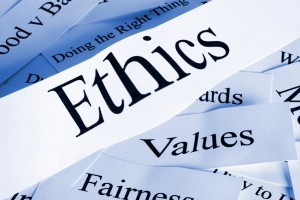 Aesthetic feeling is a feeling that inherent in a person as a result of the information, activity, action and attitude of the person perceived by him. Some idea of “feeling of beauty” and understanding of their own, personal opinion, inherent in the person, his own thought – it’s aesthetic feelings. The relation of the person to the action taken, the feeling, the feelings that have arisen and will be felt for a long period of time and also change. Continue reading
Aesthetic feeling is a feeling that inherent in a person as a result of the information, activity, action and attitude of the person perceived by him. Some idea of “feeling of beauty” and understanding of their own, personal opinion, inherent in the person, his own thought – it’s aesthetic feelings. The relation of the person to the action taken, the feeling, the feelings that have arisen and will be felt for a long period of time and also change. Continue reading
Author Archives: Mary
Moral and Psychological Treatment Aspects of People with Mental Diseases
 Covering our topic “Moral and Psychological Treatment Aspects of People with Mental Diseases” I think it would be relevant to define the “moral” notion. It is the unwritten rules of behaviour established by society.
Covering our topic “Moral and Psychological Treatment Aspects of People with Mental Diseases” I think it would be relevant to define the “moral” notion. It is the unwritten rules of behaviour established by society.
Moral considers appropriate and inappropriate actions of the society in general or individuals. Moral is considered to be the science about evil and good. Continue reading
Linguistic philosophy of Wittgenstein
 Ludwig Wittgenstein was an Austrian philosopher. He has taught at the University of Cambridge for many years. A lot of people often said that he was the most prominent philosopher of the 20th century in the West. If this statement has an element of exaggeration, but only because of it has ground.
Ludwig Wittgenstein was an Austrian philosopher. He has taught at the University of Cambridge for many years. A lot of people often said that he was the most prominent philosopher of the 20th century in the West. If this statement has an element of exaggeration, but only because of it has ground.
Wittgenstein’s exploring were in the center of philosophical research, when the subject matter of analysis became a language. The linguistic turn is more characteristic for the philosophy of the 20th century. In the a lot of things that happened because of analytic philosophy of language, which developed by Wittgenstein. Continue reading
Philosophical Anthropology (Abstracts)
 Georg Simmel and his Notion of Life
Georg Simmel and his Notion of Life
Author Rosanne Claes (MA)
Abstract: Mainly famous as a sociologist and known in the philosophy of culture, Georg Simmel wrote at the end of his days the book The View of Life, developing a metaphysical view on life. The most important element in his metaphysics is the notion of life as transcendence.
For Simmel life is always situated between two poles of determinacy and richness, the boundary and the boundless, the known and the unknown. Continue reading
Dominants of moral consciousness in the revolutionary epoch of Russia
 The revolutionary epochs in Russia were characterized not only by socio-political changes, but, first of all, by ideological challenges, by changing value paradigms, by transformations of moral consciousness and social morality. Each historical stage of revolutionary changes formed its moral dominants – values that are built into Continue reading
The revolutionary epochs in Russia were characterized not only by socio-political changes, but, first of all, by ideological challenges, by changing value paradigms, by transformations of moral consciousness and social morality. Each historical stage of revolutionary changes formed its moral dominants – values that are built into Continue reading
The Concept of National Identity in Ukraine
 In the National Security Strategy of Ukraine states that urgent tasks of national security policy is the preservation and development of spiritual and cultural values of Ukrainian society, strengthening its identity on the basis of ethnic and cultural diversity. This focuses on implementation set of policy measures aimed at consolidation of Ukrainian society and the search for national consensus on key issues of national development [1]. Continue reading
In the National Security Strategy of Ukraine states that urgent tasks of national security policy is the preservation and development of spiritual and cultural values of Ukrainian society, strengthening its identity on the basis of ethnic and cultural diversity. This focuses on implementation set of policy measures aimed at consolidation of Ukrainian society and the search for national consensus on key issues of national development [1]. Continue reading
The formation of the Basic Competences of Pupils on Navigation as a Pedagogical Problem
 To develop conceptual provisions of formation of the basic competencies of high school students on navigation singled out the need for detailed retrospective study and the study of scientific-pedagogical literature on the direction of training high school students to professional selection and training of specialists of Maritime industry and aimed at forming professional competences. Continue reading
To develop conceptual provisions of formation of the basic competencies of high school students on navigation singled out the need for detailed retrospective study and the study of scientific-pedagogical literature on the direction of training high school students to professional selection and training of specialists of Maritime industry and aimed at forming professional competences. Continue reading
Literature, Interpretation & Character (abstracts)
 Monstrosity as Evil in Simone de Beauvoir‘s Ethics of Ambiguity: An Exploration of the Sympathetic Monster Humbert Humbert in Nabokov‘s Lolita
Monstrosity as Evil in Simone de Beauvoir‘s Ethics of Ambiguity: An Exploration of the Sympathetic Monster Humbert Humbert in Nabokov‘s Lolita
The focus of this paper is a phenomenological investigation into the monstrous nature of the pedophilic protagonist of Vladimir Nabokov‘s Lolita. Continue reading
Big Data Technologies: ethical issues
 By now, modern society seems to have become accustomed to the fact that we live in the reality of an ongoing information revolution. Leading countries of this revolution developed the basic rules of the game: concerning the protection, storage, use of digital information. Continue reading
By now, modern society seems to have become accustomed to the fact that we live in the reality of an ongoing information revolution. Leading countries of this revolution developed the basic rules of the game: concerning the protection, storage, use of digital information. Continue reading
Between Ontology and Ethics (abstracts)
 Post-Ontological Thinking in Kant and Levinas
Post-Ontological Thinking in Kant and Levinas
Both Kant and Levinas criticize (traditional) ontology‘s imperialistic nature and agree about the primacy of ethics over theory. Despite this concurrence, Levinas nevertheless criticizes all aspects of Kant‘s turn towards ethics. Continue reading
